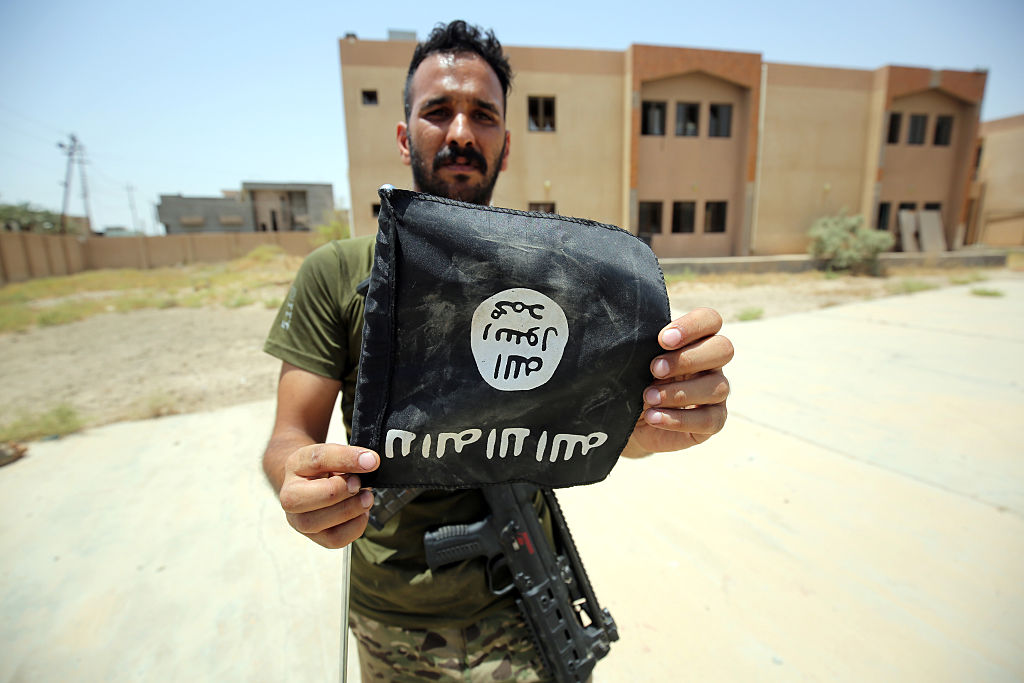Most ISIS recruits apparently don't know much about Islam


A free daily email with the biggest news stories of the day – and the best features from TheWeek.com
You are now subscribed
Your newsletter sign-up was successful
Many of the foreigners who traveled to Syria to join the Islamic State, at least in ISIS's big recruitment push in 2013 and 2014, had only rudimentary knowledge of Islam, with two Britons who joined ordering The Koran for Dummies and Islam for Dummies from Amazon to prepare for jihad, according to an Associated Press review of leaked ISIS documents, court testimony, and interviews. A look at more than 3,000 entry forms for ISIS volunteers acquired by the Syrian opposition group Zaman al-Wasl, for example, found that 70 percent of recruits had the lowest level of knowledge of Shariah law, "basic," while 24 percent were listed as having "intermediate" knowledge and only 5 percent were advanced, with a total of five recruits having memorized the Quran.
This was just fine with ISIS, according to Islam experts and escaped ISIS recruits, because it meant ISIS could indoctrinate these enlistees with its own radical and violent interpretation of Muslim doctrine and because, according to a study by the U.S. Military Academy's Combating Terrorism Center, "those with the most religious knowledge within the organization itself are the least likely to volunteer to be suicide bombers." In fact, ISIS recruiters in Western Europe would reportedly troll for recruits in bars and nightclubs.
Tariq Ramadan, a professor of Islamic Studies at Oxford, notes that many ISIS top commanders don't have any religious training either, many of them joining the group from Saddam Hussein's secular Baathist government. Mohammed Abdelfadel, an Islamic scholar in Germany who tracks ISIS propaganda, adds that Islam forbids terrorism, murdering non-combatants in war, and forcing Islam on non-Muslims, among other ISIS heresies. You can learn more about AP's findings, and watch Oxford's Ramadan answer questions about ISIS and religion below. Peter Weber
The Week
Escape your echo chamber. Get the facts behind the news, plus analysis from multiple perspectives.

Sign up for The Week's Free Newsletters
From our morning news briefing to a weekly Good News Newsletter, get the best of The Week delivered directly to your inbox.
From our morning news briefing to a weekly Good News Newsletter, get the best of The Week delivered directly to your inbox.
A free daily email with the biggest news stories of the day – and the best features from TheWeek.com
Peter has worked as a news and culture writer and editor at The Week since the site's launch in 2008. He covers politics, world affairs, religion and cultural currents. His journalism career began as a copy editor at a financial newswire and has included editorial positions at The New York Times Magazine, Facts on File, and Oregon State University.
-
 The Week Unwrapped: Have televised confessions quelled protests in Iran?
The Week Unwrapped: Have televised confessions quelled protests in Iran?Podcast Plus, why has Elon Musk turned from Mars to the Moon? And will the BBC prove to be a puzzles champ?
-
 The week’s best photos
The week’s best photosIn Pictures An Andean god, a rogue squirrel, and more
-
 9 products to jazz up your letters and cards
9 products to jazz up your letters and cardsThe Week Recommends Get the write stuff
-
 British warship repels 'largest Houthi attack to date' in the Red Sea
British warship repels 'largest Houthi attack to date' in the Red SeaSpeed read Western allies warn of military response to Iranian-backed Yemeni rebels if attacks on ships continue
-
 Houthi rebels claim Red Sea ship attacks
Houthi rebels claim Red Sea ship attacksspeed read Iran-backed Yemeni group vows to escalate aggression towards Israel-linked vessels in revenge for Gaza war
-
 Israel plans next phase of Gaza war as first hostages released
Israel plans next phase of Gaza war as first hostages releasedSpeed read After four-day ceasefire 'we will not stop' until destruction of Hamas, says Israel
-
 Mob storms Russian airport 'looking for Jews'
Mob storms Russian airport 'looking for Jews'Speed Read Plane from Israel surrounded by rioters chanting antisemitic slogans after landing in Russia's Dagestan region
-
 Tuberville's military promotions block is upending lives, combat readiness, 3 military branch chiefs say
Tuberville's military promotions block is upending lives, combat readiness, 3 military branch chiefs saySpeed Read
-
 Ukraine's counteroffensive is making incremental gains. Does it matter in the broader war?
Ukraine's counteroffensive is making incremental gains. Does it matter in the broader war?Speed Read
-
 US commissions first-ever Navy ship in a foreign port
US commissions first-ever Navy ship in a foreign portSpeed Read
-
 British spy chief, Wagner video suggest Prigozhin is alive and freely 'floating around'
British spy chief, Wagner video suggest Prigozhin is alive and freely 'floating around'Speed Read
